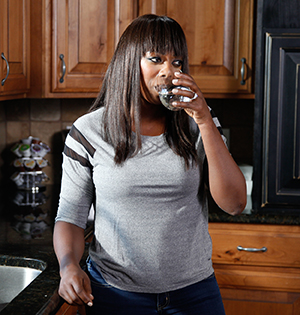Nutrition After Surgery
Some people feel a little nauseated after surgery. This is often from medicines (such as anesthesia), dehydration, or simply the stress of surgery. Don’t push yourself to eat more than you comfortably can. Listen to your body and you’ll know what to eat and when. If you were on a special diet such as low-salt before surgery, ask your healthcare provider if you should follow it during recovery.
Special note: Be sure to follow any specific post-op instructions from your surgeon, nurse, or dietitian.
Start slowly
-
Start off with clear liquids and soup. They're easier to digest.
-
Next move on to a soft (semisolid) diet (mashed potatoes, applesauce, and gelatin) as you feel ready and can handle it.
-
Slowly move to solid food. Don’t eat fatty, rich, or spicy foods at first.
-
Eat smaller amounts, more often. Eat smaller bites, and be sure to chew the food well.
Drink fluids

-
It’s normal to lose fluids during surgery. Rehydrating your system is important. It helps you feel better. And it balances the chemicals in your body called electrolytes.
-
Unless told not to, drink at least 6 glasses of clear liquids (such as water, apple juice, or ginger ale) a day. You may want to stay away from fizzy (carbonated) drinks. Or let them lose their fizz before drinking them.
Good nutrition
-
Good nutrition helps your body build and repair tissue and heal wounds.
-
Eat a low-fat, high-protein diet or as directed by your healthcare provider.
-
Whole-grain cereal, and the protein in foods like fish and chicken, may help repair tissue affected by surgery.
© 2000-2025 The StayWell Company, LLC. All rights reserved. This information is not intended as a substitute for professional medical care. Always follow your healthcare professional's instructions.